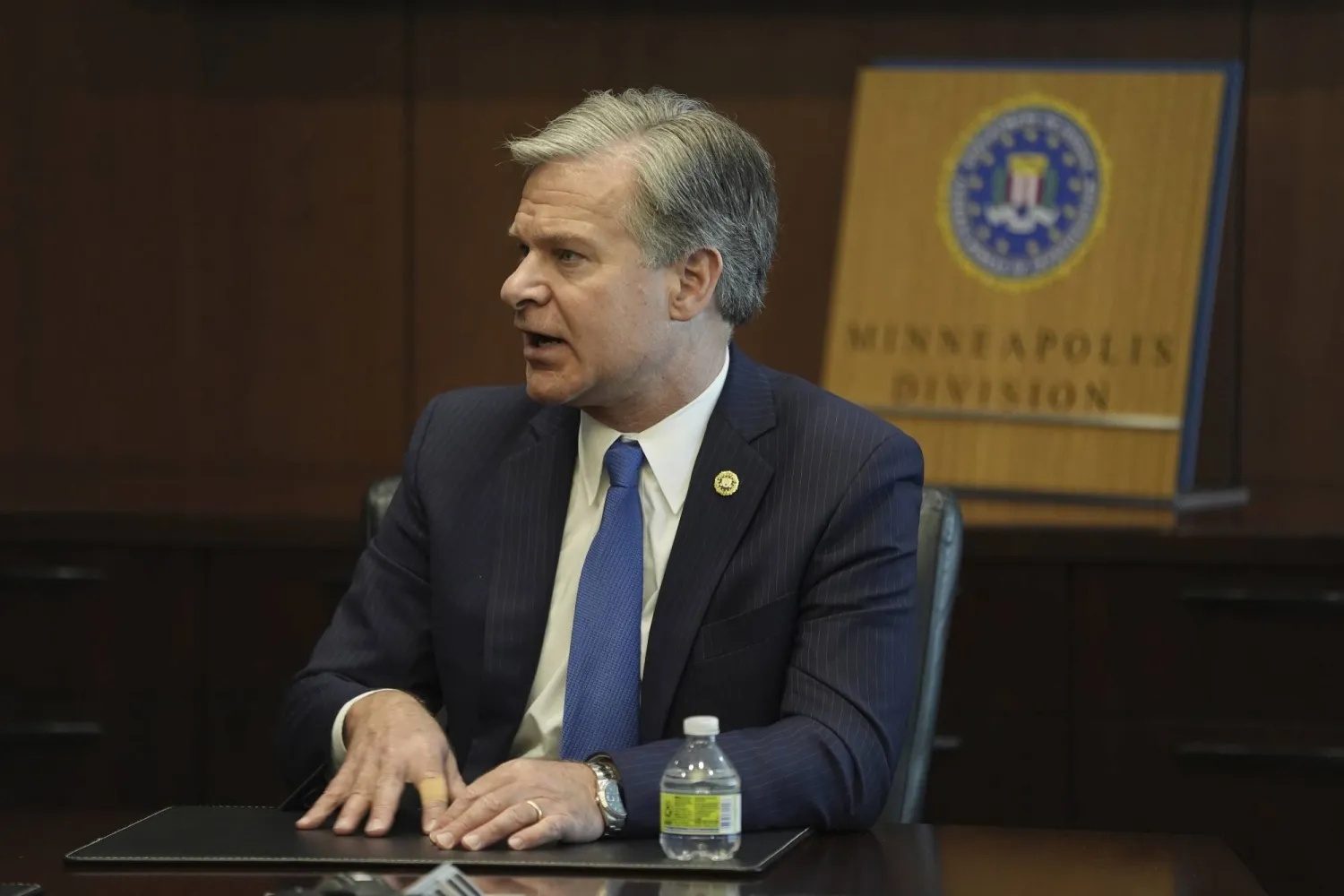The country is facing heightened threats from many corners at a time when law enforcement agencies are struggling, FBI Director Christopher Wray said in an exclusive interview, adding that he is “hard pressed to think of a time in my career where so many different kinds of threats are all elevated at once.”
Wray spoke Wednesday with The Associated Press while visiting the Minneapolis field office to talk about partnerships between law enforcement agencies and also with other entities. His remarks come as the FBI confronts heightened concerns over terrorism, both domestic and international, as well as Chinese espionage and intellectual property theft and foreign election interference.
“I worry about the combination of that many threats being elevated at once, with the challenges facing the men and women in law enforcement more generally,” Wray said at the office in the suburb of Brooklyn Center. “And the one thing that I think helps bridge those two challenges is partnerships. That’s how we get through. It is by all working together.”
Wray’s assessment of an elevated threat landscape is consistent with alarm bells he has sounded for months. Soon after the Oct. 7 attack by Hamas in Israel, Wray began warning that the rampage could serve as an inspiration to militants, “the likes of which we haven’t seen since ISIS launched its so-called caliphate years ago.”
The FBI has also scrambled to deal with security concerns related to the United States' southern border, with officials revealing in June that eight people from Tajikistan with suspected ties to ISIS were arrested and were being held on immigration violations.
Officials are also dealing with the specter of foreign election interference. The FBI and other federal agencies announced Monday that Iran was responsible for a hack targeting the Trump campaign and for an attempted breach of the Biden-Harris campaign, part of what officials portrayed as a brazen and aggressive effort to interfere in American politics.
Wray declined to talk about any specific investigation or threat but said investigations into cyberattacks, including against election infrastructure, candidates or campaigns, require help from the private sector.
“One of the things that we have been doubling down on with every passing day is, is on partnerships, because ultimately you’re talking about the ability to connect the dots, whether it’s against some kind of election influence threat or some other kind of threat,” Wray said. “You need to have partners sharing information with each other to put the two pieces together to see the bigger picture.”
Law enforcement officers are being killed in the line of duty at a rate of about one every five days, Wray said, noting that four first responders have died in Minnesota alone in 2024. They include a Minneapolis officer killed in May while trying to help someone, and two officers and a paramedic who died in Burnsville in February when a heavily armed man opened fire.
Such violence “breaks my heart every single time,” the director said.
The FBI has not been spared such attacks: Days after agents searched Donald Trump’s Florida estate, Mar-a-Lago, to recover classified documents, a gunman who called on social media for federal agents to be killed “on sight” died in a shootout after trying to get inside the FBI’s Cincinnati office.
Wray said the FBI has been working to beef up traditional partnerships with state and local law enforcement, while also creating other ones with business and academia to help counter threats against cybersecurity or intellectual property. In Minneapolis and other offices, he said, authorities are cooperating with the likes of school resource officers and mental health professionals to help at-risk teenagers in hopes of heading off future threats.
Working with industry is important for protecting innovation and artificial intelligence from foreign threats, Wray added.
“AI is in many ways the most effective tool against the bad guys' use of AI,” he said. “So, we need to work closely with industry to try to help make sure that American AI can be used to help protect American people from AI-enabled threats coming the other way.”









